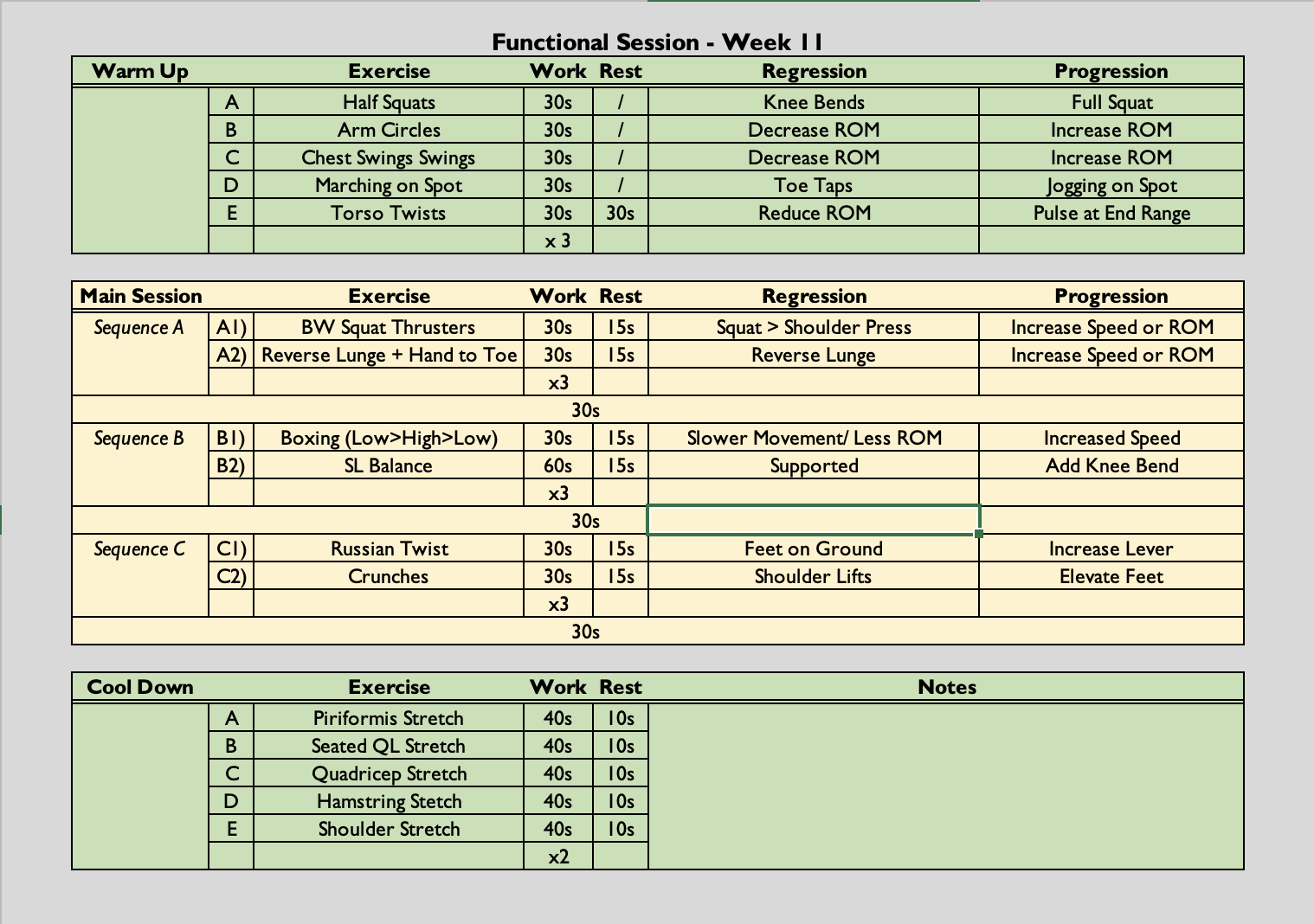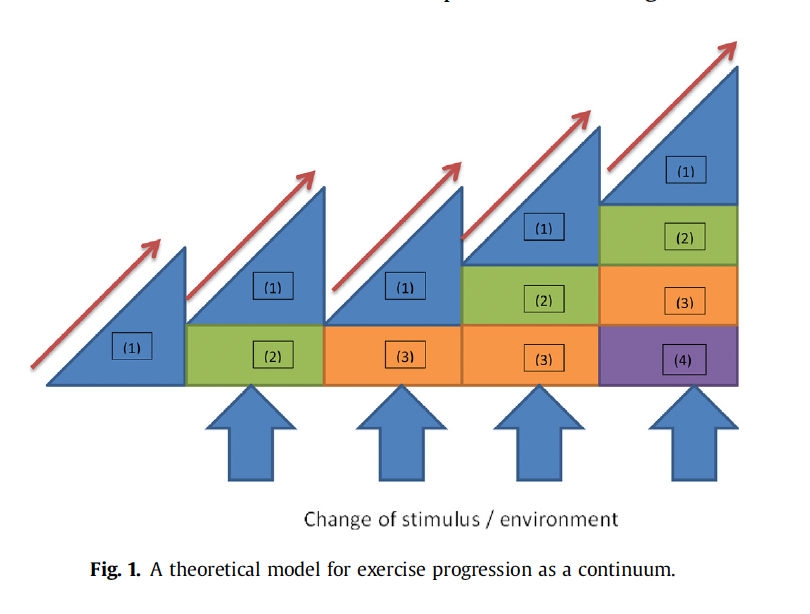31st January – 6th February
- Hours: 15
No phone calls this week
- The reasoning behind no phone calls this week is to allow participants the opportunity to experience what a week will be like without that 1-1 tailored support. However, they have the safety of knowing that if they need further advice and support they have the following weeks to ask questions they may not have thought of previously.
- It is also not a week of having support completely removed as I am still there during the gym drop-in and to teach the group class. So any immediate concerns can be addressed if necessary.
- Most participants respond well to this set-up. Many of them state that they miss their weekly phone call; however, there is never really a complaint of feeling they can’t continue their rehabilitation independently.
Functional Exercise Class
- ((30s secs x 3 followed by a 30 second rest) x 3) x 3
- The class is always symptom-led as opposed to graded exercise therapy. Participants are free to rest when needed. They can end the class early if they have reached their limit and they can reduce the amount of sets they do if necessary.
- There is a slight regression in intensity this week due to the change in exercise. Previously, the participants have been completing the same exercises each with only the duration increasing. Due to the change in exercise, it was important to reduce the intensity to allow them to adjust to the new exercise. The theory underlying this decision was from Blanchard and Glasgow (2014).

- The diagram from their paper highlights a staged progression to rehabilitation.
- Over the past 11 weeks, I have introduced 3 different types of exercise with small increases in intensity over time. As there are always variations, participants may choose to complete a simplified version of an exercise when the intensity increases or choose to remain at their current level with or without an intensity increase. As week 11’s class had new, but familiar movements, it was still important to remain in-keeping with this staged progression and therefore, reduce the time to prevent too steep a progression.
Drop-in Session
- I remained very hands-off during this session as it was about the participants coming and completing their rehabilitation independently. I was still there to talk with the participants on a social basis and if anyone had any questions they of course knew I was there to help.
- The cohort did extremely well and were even able to appropriately substitute exercises if the kit they were familiar with using was unavailable. E.g. BW squats instead of leg press.
Analysis & Evaluation
- Most of the participants report that the class feels more challenging, even though the intensity has been reduced. Therefore, choosing to lower the intensity was the correct approach in this instance. Many also reflect on how far they have come at this stage and note that they would not have been able to complete this class at the early stages of rehabilitation.
- I think at this stage it is really important to ensure that participants aren’t given something so challenging that it overwhelms them and makes them feel as though they potentially haven’t made any progress.
Conclusion
- As the programme comes to an end, I am taking more of a hands off approach to give participants an insight into carrying on their rehabilitation after the programme comes to an end. However, I am still applying principles of rehabilitation to the elements that I am still heavily involved in and considering participant response the adjustments made this week were suitable.
Revisiting Reflection
